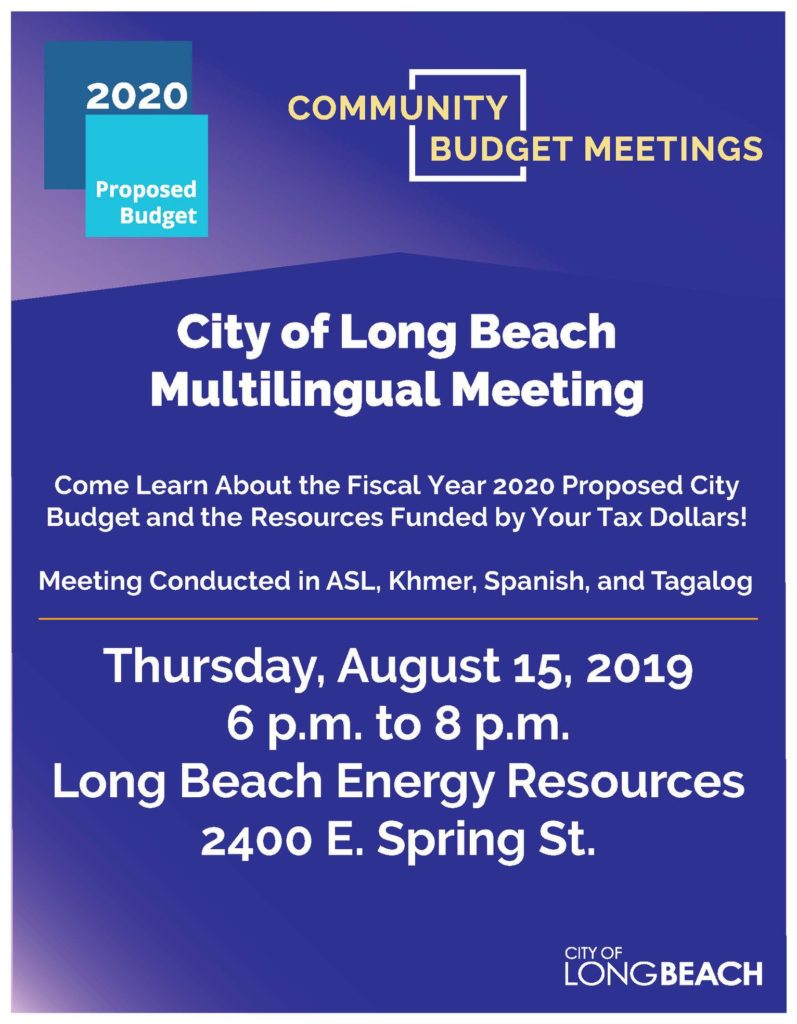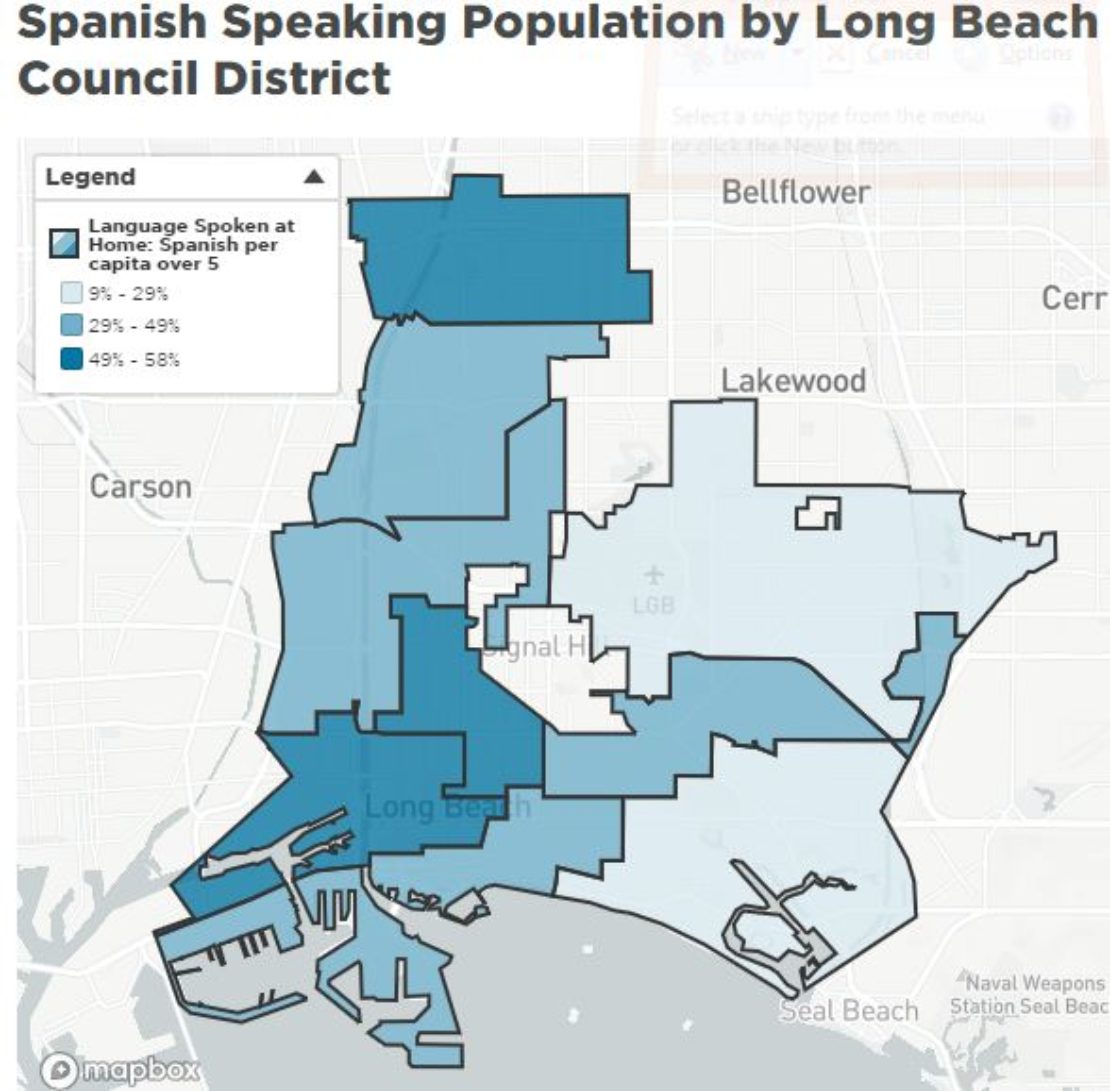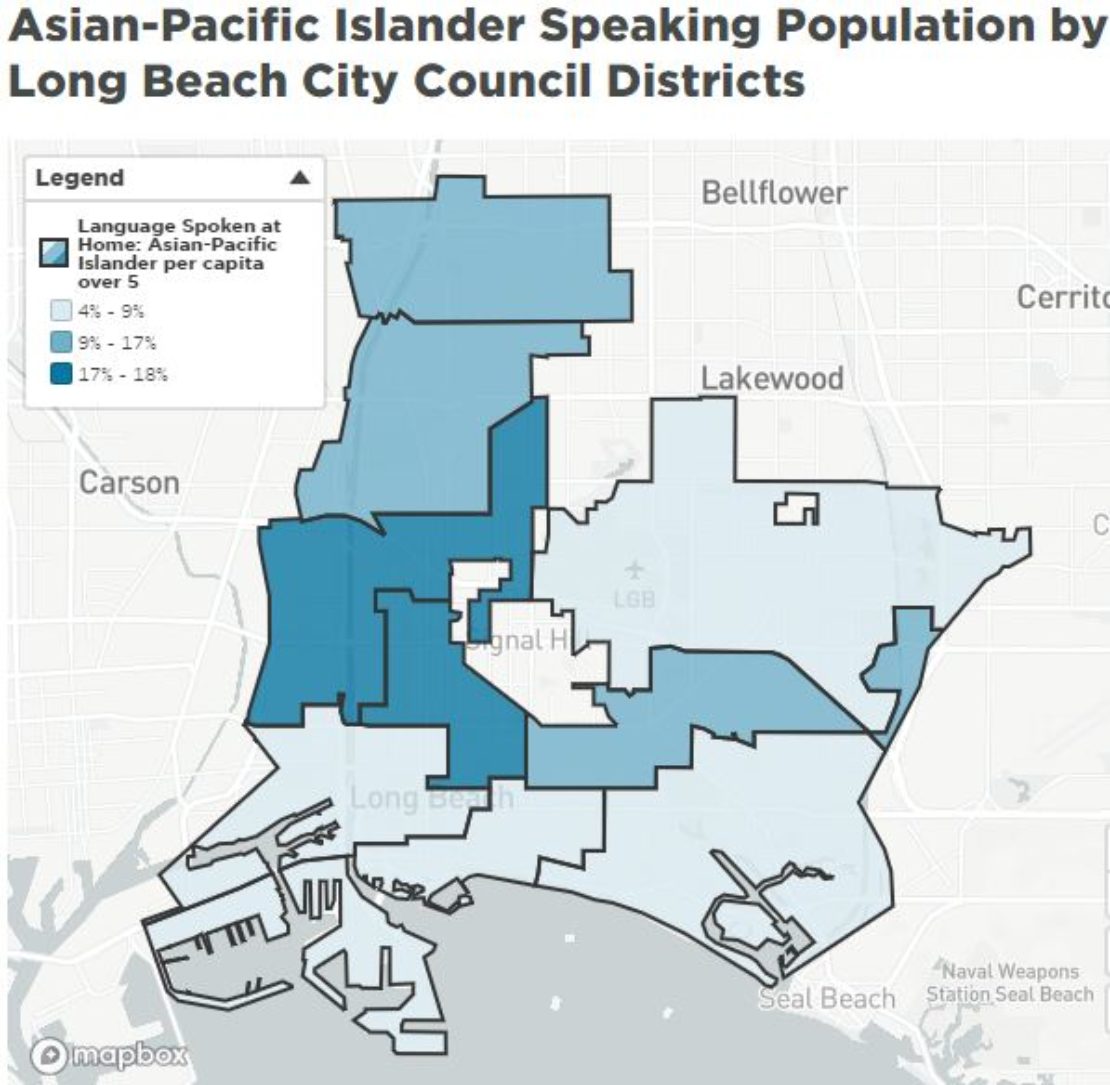Hear how the city is spending your tax dollars in Khmer, Spanish, Tagalog and American Sign Language this Thursday evening in a centrally-located part of Long Beach.
While some council members provide interpretation services during their own district budget meetings, this event will be the most language accessible of its kind citywide, according to officials.
The multilingual budget meeting was requested by the City Council last September during the fiscal year 2019 budget approval process.
“We definitely wanted to make sure that regardless of the language you speak you’re able to participate in the city process,” said equity officer Katie Balderas, who oversees the city’s Language Access Policy.

The program provides translation services for department documents and interpretation services for public meetings by request in Spanish, Khmer and Tagalog.
The top three departments that requested document translation for the 2018 fiscal year were Health and Human Services (50), Parks, Recreation & Marine (20), and police (19).
For interpretation requests, the mayor and council topped the list with 30 requests, followed by Health and Human Services at 23 and Development Services as 12.
Balderas said the language access program has seen the number of meeting interpretation requests by city departments nearly double during the 2019 fiscal year, compared to last year.
According to the most recent American Community Survey data, about 46.6% of Long Beach residents over the age of 5 speak a language other than English at home—slightly higher than the state average of 44%.
That includes 145,544 Spanish speakers, 14,762 Khmer speakers and 13,392 Tagalog speakers. The languages reflect the city’s large Latino, Cambodian and Filipino population.


Balderas admits there’s still work to do with regard to translating more city documents, but sees events like the upcoming budget meeting as a way to troubleshoot what works well for community members.
“We’re always advocating for where decisions are being made, language access should be included,” Balderas said.
While the language access program has been funded using one-time funding since 2014, it’s not structural, making it susceptible to limitations or even elimination.
Last year, the city invested $160,000 in one-time funding and plans to contribute $80,000 and an increase in ongoing structural funds for staff for the upcoming budget.
Community groups, during their own budget proposal press conference, called on the city to invest $530,000 to fund and implement the program. It would include $180,000 for a full-time coordinator, $100,000 to pay bilingual employees, $200,000 for interpretation and translation work and $50,000 in stipends for community outreach and communication efforts.
The city’s own budget did reflect the switch to the full-time coordinator position but did not specify the amount.
Balderas said the the proposed full-time position would not only allow for more community engagement but also be heavily involved in the implementation of an accurate 2020 Census count.
While the census will not include a controversial citizenship question, its shift to online-only risks excluding various marginalized communities. Last Friday, the city launched its first meeting of a committee meant to ensure a complete count.
The multilingual budget meeting will take place from 6 to 8 p.m. on Thursday, Aug. 15 at the Long Beach Energy Resources building, 2400 E. Spring St.

